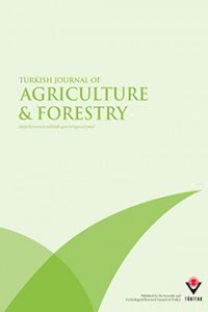Thermal Conductivity Coefficients of Wood and Wood-Based Materials
Determination of the thermal conductivity coefficient of wooden material is needed in many fields of application. It this study, the thermal conductivity coefficients of the woods of cedrus (cedrus libani a.Richard), fir (Abies cornmulleriana Mattf.), Populus nigra (Populus tremula L.), and beech (Fagus orientalis lipsky), the wooden materials most widely used in our country in furniture, decoration and construction have been determined in 12% moisture and saturated conditions for the different directions (fiber direction, tangent and radial to annual aging circles) and for two different thicknesses of flat pressed and vertical pressed particleboards and several thicknesses of Medium Density Fiberboards (MDF). For this purpose the thermal conductivity coefficients of 660 samples were measured automatically by Quick Thermal Meter Probe QTM-D3. The densities and moistures of these samples were determined stereometry and he dry air method, respectively. Results showed the average thermal conductivity coefficients in air dry conditions to be 0.1128 for Fir, 0.1146 for Populus nigra, 0.1253 Kcal/mh°C of Cedrus, 0.1580 Kcal/mh°C for Beech, 0.1783 Kcal/mh°C for flatpressed particleboards, 0.1998 Kcal/mh°C for MDF's and 0.2263 Kcal/mh°C for Hard Fiberboards.
Thermal Conductivity Coefficients of Wood and Wood-Based Materials
Determination of the thermal conductivity coefficient of wooden material is needed in many fields of application. It this study, the thermal conductivity coefficients of the woods of cedrus (cedrus libani a.Richard), fir (Abies cornmulleriana Mattf.), Populus nigra (Populus tremula L.), and beech (Fagus orientalis lipsky), the wooden materials most widely used in our country in furniture, decoration and construction have been determined in 12% moisture and saturated conditions for the different directions (fiber direction, tangent and radial to annual aging circles) and for two different thicknesses of flat pressed and vertical pressed particleboards and several thicknesses of Medium Density Fiberboards (MDF). For this purpose the thermal conductivity coefficients of 660 samples were measured automatically by Quick Thermal Meter Probe QTM-D3. The densities and moistures of these samples were determined stereometry and he dry air method, respectively. Results showed the average thermal conductivity coefficients in air dry conditions to be 0.1128 for Fir, 0.1146 for Populus nigra, 0.1253 Kcal/mh°C of Cedrus, 0.1580 Kcal/mh°C for Beech, 0.1783 Kcal/mh°C for flatpressed particleboards, 0.1998 Kcal/mh°C for MDF's and 0.2263 Kcal/mh°C for Hard Fiberboards.
